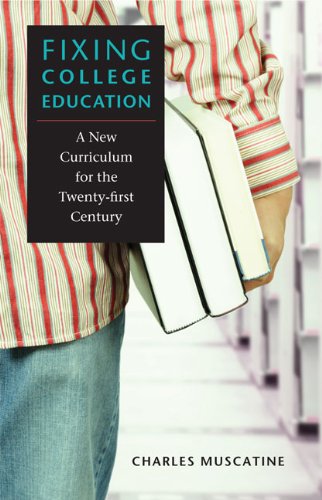

Most ebook files are in PDF format, so you can easily read them using various software such as Foxit Reader or directly on the Google Chrome browser.
Some ebook files are released by publishers in other formats such as .awz, .mobi, .epub, .fb2, etc. You may need to install specific software to read these formats on mobile/PC, such as Calibre.
Please read the tutorial at this link: https://ebookbell.com/faq
We offer FREE conversion to the popular formats you request; however, this may take some time. Therefore, right after payment, please email us, and we will try to provide the service as quickly as possible.
For some exceptional file formats or broken links (if any), please refrain from opening any disputes. Instead, email us first, and we will try to assist within a maximum of 6 hours.
EbookBell Team

4.7
76 reviewsSince his early days at the University of California, Berkeley, when he was fired for refusing to sign a loyalty oath during the Red Scare, Charles Muscatine has been a dedicated teacher and higher education reformer. Upon his reinstatement at Berkeley, he founded "Strawberry Creek College," a six-year experiment using full professors and small classes to teach lower-division students. Drawing on this belief in undergraduate teaching, Muscatine’s new book now offers a radical new design for American college education.
Muscatine begins with the observation that the mediocre undergraduate curriculum offered by most colleges and universities today is based on outdated ideas of what should be taught and what constitutes good teaching. Although Muscatine is himself a well-established research scholar, he contends that the publish-or-perish "research religion" of college and university faculties has seriously damaged undergraduate education. He offers a clear distinction between publishable research and the scholarship necessary for good teaching. Furthermore, he recommends major changes in the education of professors, including reconsidering both the requirement of the book-length dissertation and the current organization of graduate departments.
Fixing College Education predicts new roles for students and faculty, redefines educational breadth and depth, and calls for deeper assessment of learning and teaching. Muscatine highlights the outstanding colleges and universities, including Harvard, Boston University’s University Professor’s Program, Evergreen State College, and Fairhaven College at Western Washington University, that have already remade their curricula successfully or adopted features like the ones he proposes. Muscatine argues that the new curriculum is better able than the old to produce good scholars and good citizens for the twenty-first century.